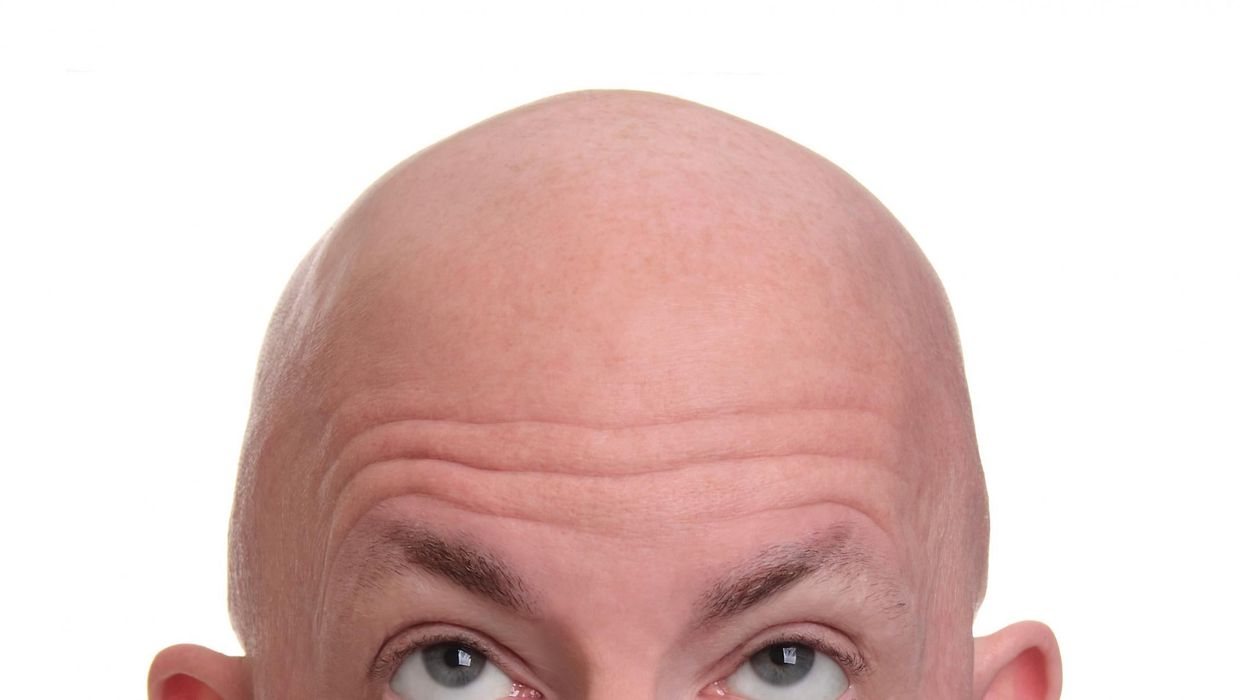News
Greg Evans
Aug 26, 2017

Picture:
iStock/Getty Images
Going bald is a worry that crosses many people's minds at least once in their lives.
Unless you are super cool and look like Michael Jordan, Zinedine Zidane or Bruce Willis, losing your hair can be a traumatic experience.
Studies have shown that bald men are more intelligent, but it's still a hard thing to live with if you're attached to your flowing locks.
At least 50 per cent of men will experience some form of baldness in their lifetime.
This can be cause by all sorts of things, ranging from age to genetics, illness and hormones.
For many it will happen before they reach their fifties, but for some it could even start occurring as early as their twenties.
If you feel that you are starting to bald however, new research might have just answered your prayers.
The good folks over at the University of California have been conducting studies on mice and have discovered a new way to make hair grow.
By increasing the production of lactate in hair cells, previously redundant follicles have appeard to start growing again.
The study has been published by Nature, and showed that hair cells are quite different to the other skin cells in the body.
These cells produce something called pyruvate, which is a glucose that if sent to the 'powerhouse of the cell' (the mitochondria) can actually help hair grow.
Heather Christofk, the co-author of the study is quoted as saying:
Our observations about hair follicle stem cell metabolism prompted us to examine whether genetically diminishing the entry of pyruvate into the mitochondria would force hair follicle stem cells to make more lactate, and if that would activate the cells and grow hair more quickly.
They carried out their theory on two sets of mice, one that had been engineered to not produce lactate and one that had been engineered to produce lactate.
The grop that was lacking lactate struggled to grow hair, while the group with more lactate actually saw an increase in hair growth.
William Lowry, another author on the study, adds:
Before this, no one knew that increasing or decreasing the lactate would have an effect on hair follicle stem cells.
Once we saw how altering lactate production in the mice influenced hair growth, it led us to look for potential drugs that could be applied to the skin and have the same effect.
The scientists have now managed to identify two different drugs which could help humans suffering from hair loss.
These are called RCGD423 and UK5099, which both help hair produce lactate - but we should stress that these haven't been tested on humans.
AimeeFlores, a predoctoral trainee who is credited as the first author on the study, says:
The idea of using drugs to stimulate hair growth through hair follicle stem cells is very promising given how many millions of people, both men and women, deal with hair loss.
I think we've only just begun to understand the critical role metabolism plays in hair growth and stem cells in general; I'm looking forward to the potential application of these new findings for hair loss and beyond.
What's even better is that if the research and drugs turn out to be a success, it could be used to help those who suffer from alopecia, the hair loss condition which effects two in every 1,000 people in the UK.
Top 100
The Conversation (0)













